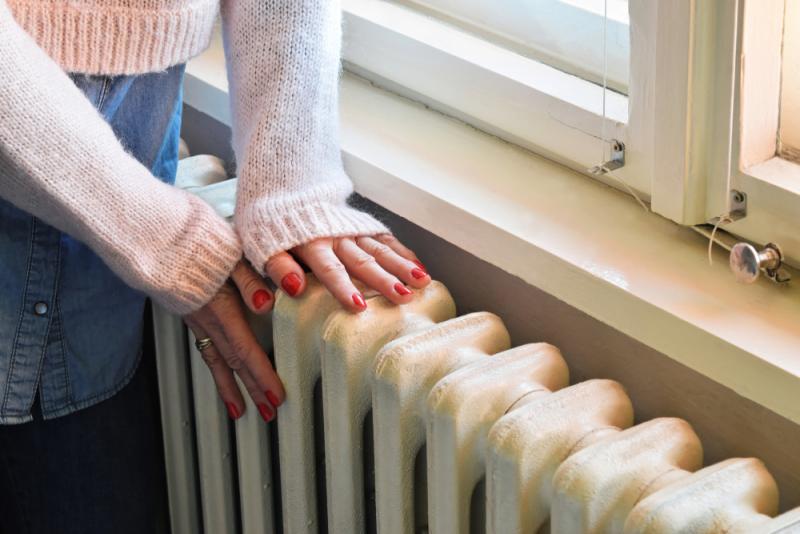
If your gas central heating system isn't warming your house enough, air may be trapped in the system.
You can fix this by bleeding the radiators which will let out any trapped air.
But before you start, check to make sure there isn't an underlying problem, like a leak; any signs of rust or water underneath your radiators could suggest you have this issue.
How to bleed a radiator in five steps
If you need to bleed a radiator, follow these five steps:
1. Check each radiator
Most radiators need bleeding occasionally to allow hot water to circulate fully.
If your radiators take a long time to heat up or feel hot at the bottom and cold at the top, then it's time to bleed the radiators.
2. Turn off the heat
This is very important; boiling water could result in injury and a ruined floor. Be sure to get some old towels ready in case of any leaks.
3. Release the air
You'll need a radiator bleed key which you can buy from any DIY store if you can't find yours. A flat-blade screwdriver for more modern radiators may also work.
Fit the key or screwdriver into the valve groove at the top of your radiator.
Have a rag ready underneath to catch any drips and use another to protect your hands, or wear suitable gloves.
Slowly twist anti-clockwise, and you'll begin to hear a hissing which is the air escaping.
4. Listen for escaping air
As the air escapes, the water will rise to the top of the radiator. As the water starts to escape, shut the valve.
Then repeat this process as you need to on the remaining radiators.
5. Check the pressure
Take a look at the boiler gauge. For most boilers it should be around the 1 to 1.5 mark.
Turn the heating on to make sure there are no cool spots on the radiators and that's it - you're all done!
How long does it take to bleed a radiator?
It depends on the size of your radiator, but it shouldn't take more than 30 seconds.
How do I know if my radiator needs bleeding?
The most common sign that your radiator needs bleeding is if it has cold patches at the top and the bottom is warm.
Other indicators include your radiators making gurgling noises or taking longer than normal to heat up.
How often should I bleed my radiators?
Even if you're not experiencing any issues once a year is recommended to make sure your heating system is working at its best.
Early autumn is a good time to check as you can make sure your heating is ready for the colder months.
If you're bleeding your radiators more regularly than once a year, call a plumber as you may have more problems than trapped air.
If you still don't feel confident then don't try anything you aren't comfortable with - instead ask a friend or family member for help.
If you find bleeding the radiators hasn't solved your heating problem, you may need to contact a heating engineer. You can find a trusted engineer in your area through Trustatrader.
For odd jobs around the home, take a look at our DIY maintenance planner to compare the costs of hiring a pro or doing it yourself.


